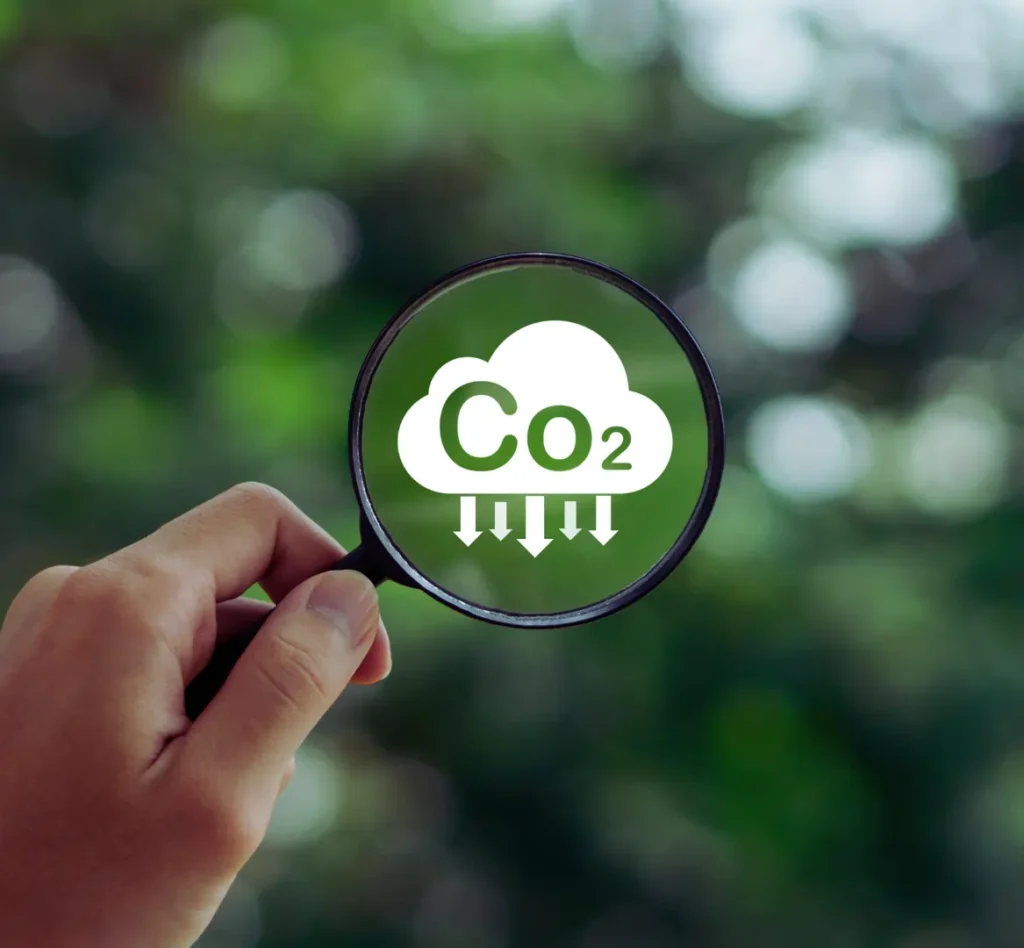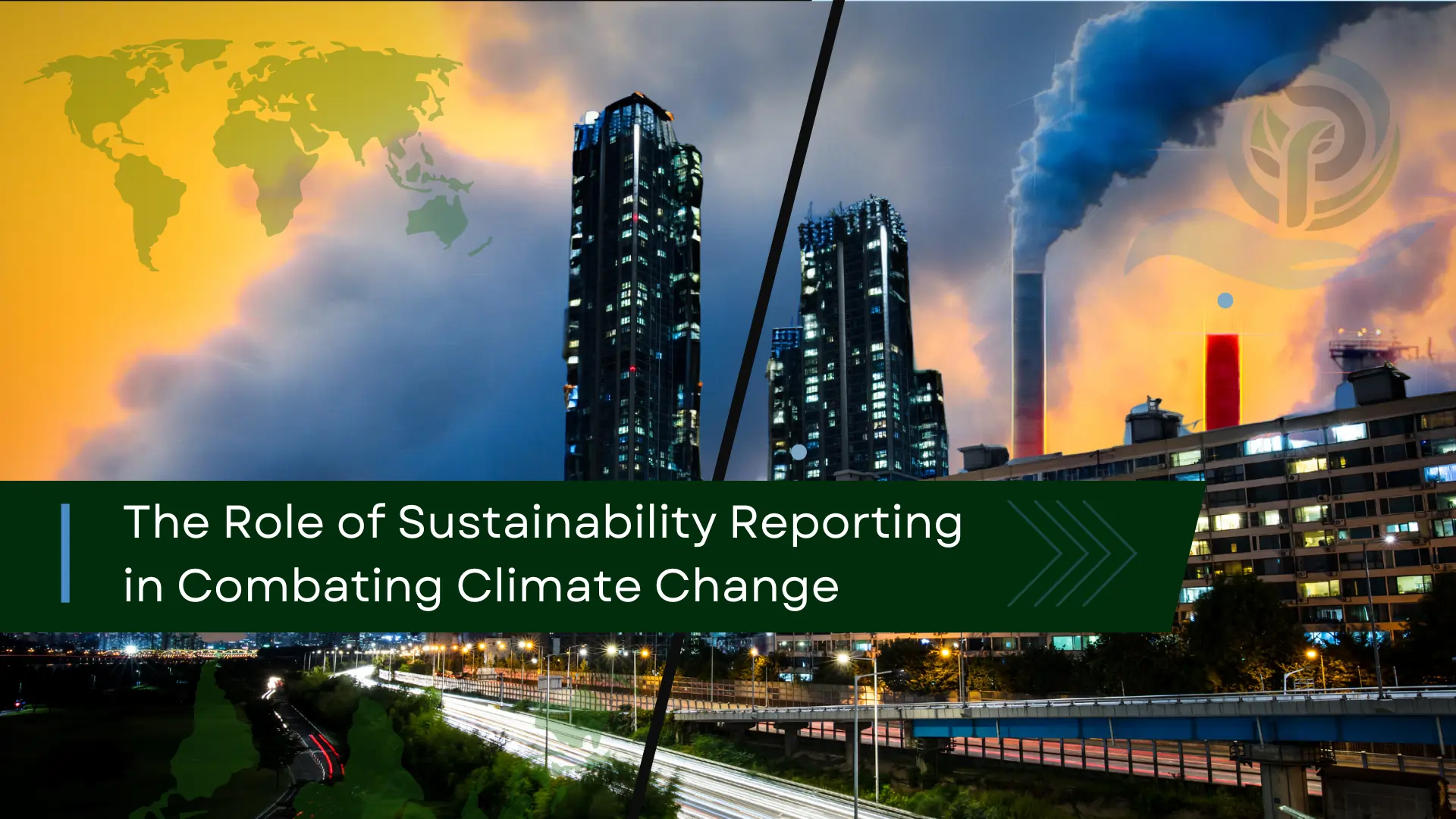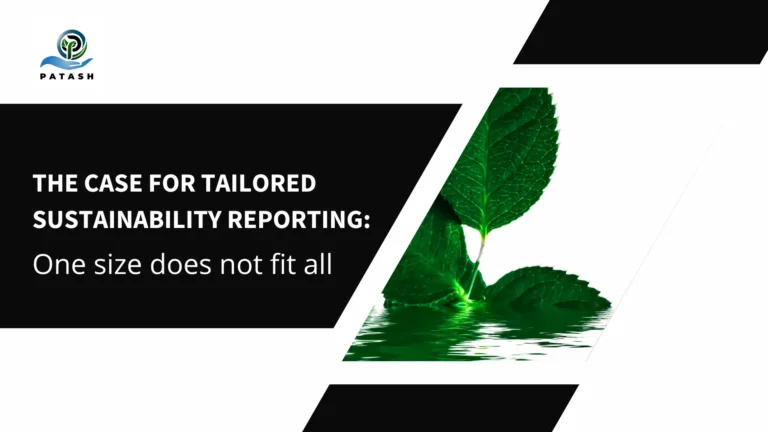Climate change stands as one of the most pressing challenges facing humanity today. In response, global efforts have been mobilised to tackle this issue, notably through the 17 Sustainable Development Goals (SDGs), with a specific focus on Goal Number 13: Climate Action.
While various initiatives aim to address climate change, one solution that often flies under the radar is sustainability reporting. In this post, we will explore how sustainability reporting can significantly contribute to our fight against climate change.

How sustainability reporting can significantly contribute to our fight against climate change
Transparent Communication
Sustainability reporting allows organisations to transparently communicate their environmental, social, and economic impacts—both positive and negative. This transparency creates a sense of accountability; companies face pressure from the public and non-governmental organizations (NGOs) to reduce their adverse effects while enhancing their beneficial contributions. By adhering to sustainability reporting frameworks such as the Global Reporting Initiative (GRI) standards for sustainability, organisations are not only compelled to set targets but also must account for how they manage negative impacts and assess the effectiveness of these management processes.
encourages dialogue between companies and stakeholders
Moreover, sustainability reporting encourages dialogue between companies and stakeholders regarding product information. This communication fosters valuable feedback that can drive innovation and continuous improvement in offerings—ultimately leading to better management of environmental impacts. Compliance with regulations is another crucial benefit; through effective sustainability reporting practices, businesses can identify potential legal breaches related to emissions limits or other environmental standards within their respective countries.
Given these insights, it’s vital to underscore the importance of sustainability reporting in addressing climate change—it serves as a foundational step towards managing adverse environmental effects effectively. Without such practices in place, efforts may resemble shooting in the dark; organisations could be striving for improvement without any clear understanding of whether they are making progress or achieving desired outcomes.

Challenges
Nonetheless, challenges persist when it comes to measuring greenhouse gas emissions accurately. Current reported levels often rely on estimates across various industries due largely to insufficient data availability—particularly among small and medium-sized enterprises (SMEs). Encouraging more SMEs to engage in sustainability reporting could lead us closer towards accurate estimations of greenhouse gas emissions.
In conclusion, it is imperative that we motivate every organisation—not just multinational corporations—to adopt sustainable practices as outlined by Sustainable Development Goal No. 12.6 concerning corporate responsibility for accountability. By embracing sustainability reporting processes actively, all businesses can play an essential role in combating climate change.


